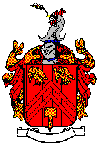
Public Libraries Families Genforum Links Other sites |
The Masters Family In America
The following is from a Masters Genealogy that was compiled by Janice Reddell Masters, wife of Charles Tipton Masters, a descendant of Newton Jasper Masters.
"The general tradition is that the Masters family came from the
landed gentry living along Kent (England). Since the oldest
brother only inherited, a second son came over with Lord Baltimore
when Maryland was settled. The family moved from Maryland to
either Anderson or Spartanburg, South Carolina. Seemingly many
are there today. From there some moved to North Alabama.
There were four Masters brothers. Their father was a Baptist
preacher by the name of George Washington Masters. The names
George and Washington were popular in the family due to the fact
that an ancestor had been on George Washington's staff."
In a letter dated October 19, 1982, June Masters Bacher reported what she had heard of the arrival:
"I do know that this great-great grandfather George Washington
Masters came from England and married Anna Warren (of royal birth,
first cousin to Queen Victoria)"
Exie Masters Belk reports on September 3, 1983:
"I remember grandpa (Robert S. Masters, grandson of Hillery) telling
the story time, time and time again about Knottly and his sister
Florence boarding a British ship, to escape a cruel step-mother, and
coming to America."
This from Carolyn Bettis in a letter dated July 15, 1983:
"Some have recorded Notley and Mary Sealot of Surry County, South
Carolina as parents of Hillary. He left Wales for America due to
bad treatment from his mother."
A fifth legend of the arrival of the immigrant Masters is the one known to Oscar and Robert Eldridge of Livingston, Tennessee. It had been told to them by their grandfather, Robert S. Masters, a grandson of Hillery. Oscar Eldridge recorded it sometime in the 1920's:
"Long, long ago in Wales there lived a Masters family. There
were two children, a boy named Notley and a girl, her name I do
not know. The mother died and the father married again. The
step-mother was unkind to the children and became so cruel that
the father took them to a small island near the mainland of Wales
and left them. He went by about once a week to see about them
and to take provision.
One day a ship came by the island enroute to America. They
needed a boy to work on the ship, so thay told Notley that if
he would work his way they would take him to America. The lad
was then 12 or 14 years old and was so eager to leave the island
and ride the ship that he readily consented, left his sister and
came with the ship to America. They probably landed in Virginia.
Notley knew that when he left the Island that their father would
soon come and see about them and he would take care of his
sister, so he left probably never hearing from them again."
In his autobiography, Across Spoon River, Edgar Lee Masters has given us a version of the legend as he heard it from Robert S. Masters when he visited him in Tennessee in 1927:
"The Masters family was planted in Virginia sometime in the
eighteenth century by Knottley Masters, who was born in England
or Wales, and being driven from home by a stepmother went to an
Island off the coast of Wales with his sister, where they lived
in poverty like aboriginals. One day a sailing vessel passed
the island, the master of which was attracted by the smoke of
Knottley's campfire. He landed and took Knottley and the sister
on board and sailed away with them to Virginia."
Although the stories told by Robert S. Masters to his grandchildren cannot be verified, it is,
nevertheless, interesting and even exciting that a wicked stepmother -- a recurring theme
in folklore -- has crept into the legend that is dear to one branch of our family.
In the legend of our coming as told by Janice Masters, it is evident that at least two events remained in the memory of her family line -- the arrival of the immigrant ancestor into early Maryland and the eventual move of her line into the Anderson District of South Carolina. Missing is the 7 - 8 year interval that Notley spent in North Carolina between 1772 - 1780. The name of the immigrant ancestor and the generations which intervened between him and Notley/Hillery contradict the notion that Notley was the immigrant ancestor or the father of Hillery as previously believed.
|